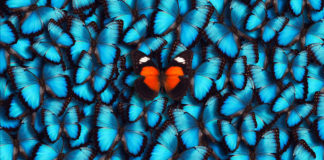Reviving compassion | What not to say to someone who is suffering
Although grief is a universal experience, we respond differently to its onslaught, so it's no wonder that words meant to comfort often add more suffering to an already heavy burden.
How to encourage others
What if we weren't allowed to use more than 140 words a day? If we entered this game, among the useless words we would give up there would probably be words that convey encouragement too. The sad irony is that we use too few words of encouragement anyway, although the emotional and relational benefits are too important to neglect.
Prayers of thanksgiving and praise
When we think of gratitude and a lack of gratitude, the biblical scene that comes to mind is the healing of the ten lepers, of whom only one, a Samaritan, returned to thank the Saviour, worshiping and praising God in a loud voice (Luke 17:15-16).
The illusion of connection
I sat slouched on the edge of my bed, blue light illuminating my face in the dark. It was the tenth time I’d checked my phone in the space of five minutes. I grimaced. Was something wrong with me?
From rancour to forgiveness: How do Christians manage conflict?
A lack of conflict is not necessarily a sign of spiritual maturity, as some Christians might be tempted to believe. The way in which we manage conflict says a lot about how we understand the role of grace, forgiveness and reconciliation in a sinful world.
The kind of romance that destroys our relationships
Twenty-first century people are bombarded with fiction about romance.
How to embrace change without changing who we are
Change is the only constant in life, especially the kind that comes unexpectedly and makes us believe that we cannot give in to it without giving up on ourselves, or turning into something we are not.
A spectator in your own life
Tim Urban knows that you're reading this article instead of dealing with that project for which the clock is ticking relentlessly towards the deadline. But Tim Urban understands you. The blogger who founded the long-form platform Wait But Why gave a TED presentation on procrastination a few years ago, and most of us will recognise ourselves in it.
Bullying: Effective strategies to put an end to it
Children who fall prey to bullying cannot save themselves, just as the children who have become accustomed to bullying others will not give up this behaviour without outside intervention. As the phenomenon of bullying spreads, with harmful consequences on children's development, the need to know and apply strategies to combat it is becoming more pressing.
What exactly lies within us?
“What is mankind that you make so much of them, that you give them so much attention, that you examine them every morning and test them every moment?” (Job 7:17-18)
Is there a cure? The painful limitations of the fight against paedophilia
Little over a decade ago, a highly acclaimed British documentary filmmaker, Louis Theroux, stepped into the midst of 500 paedophiles admitted to the psychiatric hospital in Coalinga, California, trying to find out if the complex treatment the convicts had to go through was really working.
The generation gap, a power struggle?
At some point, we've all come across the phrase "back in my day," a deeply subjective expression which encapsulates a universal phenomenon: the generation gap.
The mum load
The mental load is a concept that has gained attention in the last little while. What if mental load had a baby?
What religion has to say about anxiety
A cold flash, like the strange, icy feeling after a burn, runs through his body with every breath. He feels his heart racing. It feels like it is counting down to the moment when it will explode—or, mercifully, to the moment when he will turn his pillow to the cooler side, and finally fall asleep.
Positive thinking overdose: Why too much optimism is harmful
If optimism helps us get rid of problems more easily, too much optimism does the exact opposite: it amplifies them. Pushed to the extreme, positive thinking prescribed as an antidote to suffering prevents us from accepting reality as it is and starting to look for solutions that can make our lives easier.


























